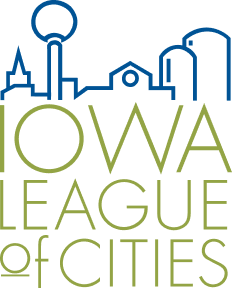Mobile food vendors, or “food trucks”, have long been a part of vending at food festivals, local and state fairs, seasonal events and even daily operation. In recent years, the mobile food vending industry has grown in popularity across the country and in Iowa. Food trucks can serve as a “test market” for those who are want to know whether a permanent restaurant would be marketable. Often times, food trucks prepare restaurant-quality food quickly and inexpensively and are enjoyed by their patrons. Some food trucks bring food and goods to the area that would not otherwise be available through other merchants. Careful regulation can provide a solid framework for successfully
It is important to involve the various stakeholders throughout the process of reviewing these policies. Among the concerns related to food trucks are those of the restaurant industry and other advocates of stricter regulation. Some of these concerns include environmental and sanitary issues, competition, noise and congestion of streets and sidewalks, and diminished quality of life. These can and should be addressed and discussed during the process of updating related ordinances. Those who support the food truck industry trend point out how it not only provides high quality, affordable food, but it may help revitalize public spaces, make them more attractive places to live, and bring economic development along with it.
The food truck industry is projected to more than quadruple in annual revenue, according to Food on Wheels, a National League of Cities (NLC) study. Annual revenues generated nationwide by mobile food trucks are approximately $650 million, and are projected to reach approximately $2.7 billion in food revenue in five years. In preparation for this sharp upward trend cities should evaluate, create or modify their city ordinances. NLC reports that most cities are legally ill-equipped to harness the expansion of this industry. Many cities need to refresh ordinances pertaining to food trucks as their prevalence increases.
The NLC report lists the following five overall recommendations for cities in updating food truck regulations:
- Hold town hall forums.
- Encourage dialogue and building relationships among competing stakeholders.
- Implement pilot programs to determine what regulations to adopt.
- Use targeted practices as a way to address underserved areas of the city.
- Identify private vacant lots and create partnerships for mobile vendors to gather and vend in the same location.
Clearly, each community has its own set of unique characteristics and circumstances that will shape the framework for its food truck regulation. While there are many factors to consider related to food truck regulation, many fall into the four main policy areas discussed in the NLC study: economic activity, public space, public health and public safety. For its study, NLC analyzed 13 major U.S. cities of varying geographic location. Although Iowa’s populations are much smaller than those cities studied, the trends identified remain applicable.
Economic Activity
In general, there is a balance to strike between promoting community vibrancy and economic development, and deterring vendors due to cost as a barrier to market entry. Cities are naturally concerned with the increased costs associated with regulation, while vendors are concerned with start-up costs, including city permitting. As a best practice outcome of the NLC study, cities are advised to consider streamlining their permitting processes and evaluate permit costs. The study noted that there are often numerous components within the permitting process, requiring new vendors to work with multiple city departments to permit and license their business. Some cities who have updated their permitting process have begun to centralize these processes. Cost varied widely as well.
Public Spaces
Regulation of food trucks also involves the issue of geographic limitations, conflicting interests and equity amongst vendors, duration of time permitted on public property, and proximity limitations to permanent restaurants and other vendors. Careful consideration should be made in order that access to public spaces is flexible enough to fit the needs of the food trucks, but not overcrowded, polluted and congested. The NLC study recommended time limits be of at least four hours or longer in duration, citing that food truck vendors generally need sufficient time to setup and tear down their trucks each time. Proximity to other established businesses is another consideration that must be done on a city-by-city basis. Most cities in Iowa have much less population density than those considered in the study. Established restaurants likely prefer food trucks to be a greater distance due to competition. However, food truck vendors typically prefer areas with more pedestrian traffic, more potential places to sell, etc., which are often near established business areas.
Public Health
Perhaps the most common concern associated with food trucks are those of public health and safety. Food safety and sanitary preparation regulation is critical, as well as addressing cost efficiency. In Iowa the health code is part of state law. Cities follow the state health code which applies to established restaurants and food trucks.
Public Safety
Cities regulate food trucks in part to provide a safe environment near schools, pedestrian areas and near private property. The NLC study advises cities to consider restrictions on operating during school hours. According to the NLC study, some of the issues of food truck vending near schools are traffic congestion-related safety issues, increased chances of predators within close proximity of school properties, and whether or not the food served by food trucks meets school food safety standards.






